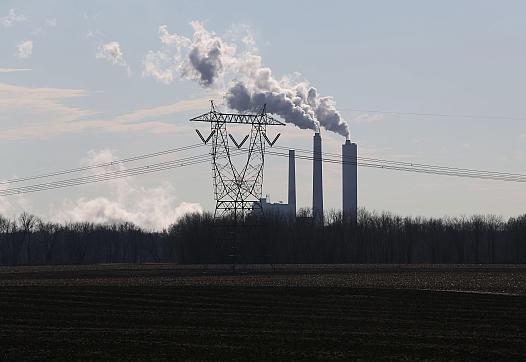
The Bay Area air district is currently weighing a proposed cap on greenhouse gases and pollutants coming from the five Bay Area refineries. The cap would in effect freeze local refineries at their current levels of production.

The Bay Area air district is currently weighing a proposed cap on greenhouse gases and pollutants coming from the five Bay Area refineries. The cap would in effect freeze local refineries at their current levels of production.

For reporter Giles Bruce, it wasn't until he jettisoned all his preconceived notions about what was driving Indiana's high infant death rate that he found his real story.

For an ambitious project on lead in Chicago, City Bureau started with the question: "How do we as journalists meet people where they are?" The answer included a text-message service that responds with lead test data for the user's community.
![[Cropped photo by Melissa Hillier via Flickr.]](/sites/default/files/styles/teaser_list_thumbnail_large/public/title_images/Cropped_paint.png?itok=akbC9D2w)
New research on lead's negative effects on IQ and class makes a brutal irony even clearer — lead is a lifelong disaster, particularly for poor children already facing serious disadvantages.

In California’s Merced County, residents are more likely to be exposed to tobacco, suffer from poor air quality, or die of heart disease. At the same time, the region faces a long-running shortage of doctors.

The shortage of doctors in California’s San Joaquin Valley has long impacted Central Californians in a very real way. Will efforts to combat the shortage make a difference?
![[Photo: Frederic J. Brown/Getty Images]](/sites/default/files/styles/teaser_list_thumbnail_large/public/title_images/unnamed_50.jpg?itok=WN-O-pHM)
Record temperatures aren’t just threatening cracks in distant polar ice — they’re raising questions about how well California’s most vulnerable city dwellers are coping with urban heat impacts.
![[Photo by Ken Lund via Flickr]](/sites/default/files/styles/teaser_list_thumbnail_large/public/title_images/unnamed_49.jpg?itok=3OZhsXTS)
Castulo Estrada grew up in Oasis, a mobile home community on the east side of Coachella, Calif. The way he describes it, Coachella is divided in two parts: the west side and the east side. On the west side, there are beautiful homes with large front and backyards. Fifteen percent of all golf courses

Why nearness is a problem, what schools can do and how parents have led the way.

Bay Area refineries are gearing up to receive and process a growing volume of tar sands and heavy crude oils. What does this mean for the health of residents in the region?